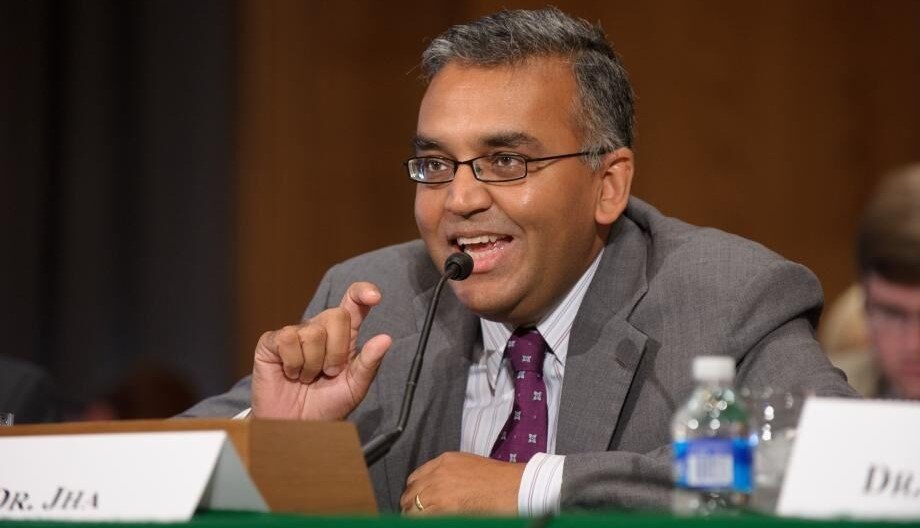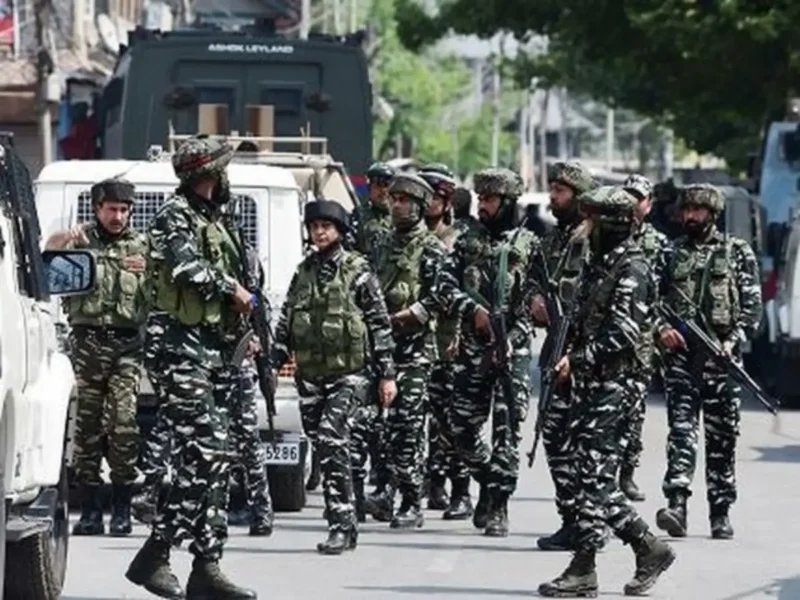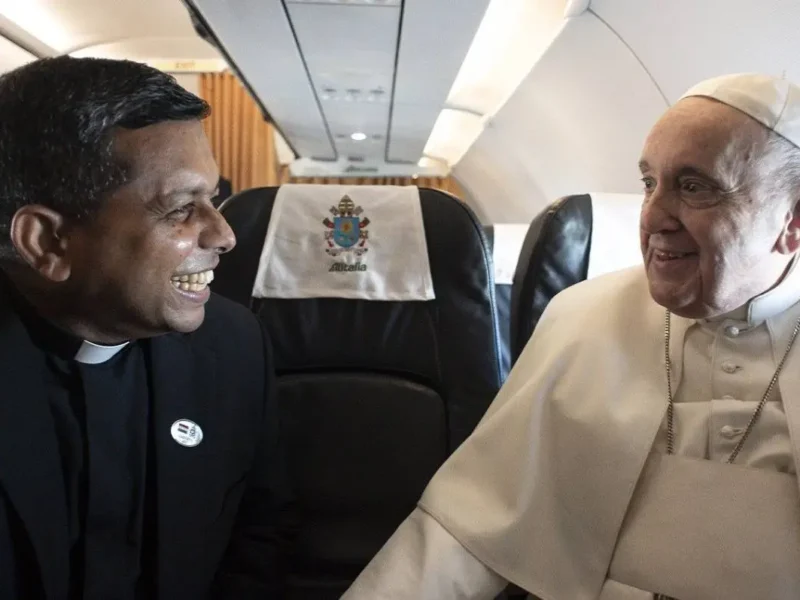
The Pandemic Isn’t Over Yet: Keep Those Masks On and Stay Home Even If Vaccinated, Advises Public Health Expert Ashish Jha
Dean of the Brown University School of Public Health Ashish Jha held a virtual briefing with reporters March 11 morning, to caution against re-opening schools and economies too soon amid the threat of a new more virulent mutant variant. The Indian American health expert predicted that by mid-April, all high-risk individuals who want to be vaccinated will have had at least their first shot. (Wikipedia.org photo)
By SUNITA SOHRABJI/India-West Staff Reporter
Even though more than 50 million people have received at least one dose of the Pfizer or Moderna COVID vaccine, it isn’t time yet to be lifting mask mandates, like the states of Texas and Mississippi, or rolling back public health restrictions, said Dean of the Brown University School of Public Health Ashish Jha, at a press briefing March 11.
“Given that we are in a better shape now than we were in the darkest days of the pandemic — over the holidays or early January in terms of just the sheer number of people dying every day — it is very tempting for people to think ‘okay, the pandemic is over and it’s time to open up,’” said the well-known Indian American public health expert. “But this is not the moment to do that.”
Jha said that daily infection rates in the U.S. still reach an alarming rate of more than 60,000 per day. Secondly, new more virulent and highly contagious variants are emerging, including the B117 variant from the United Kingdom, which has a 64 percent higher death rate than existing variants, according to a University of Exeter Study.
Centers for Disease Control and Prevention director Rochelle Walensky said at a Feb. 26 press briefing that 10 percent of COVID infections are now the B117 variant.
Updating Walensky’s numbers, Jha said the 20 to 30 percent of new infections today are the B117 variant, which could be the prevailing strain by the end of March.
Every country that has seen the B117 variant has experienced a huge spike in hospitalizations and death rates, said Jha, adding however that the rapid pace of vaccine administration will stave off the worst.
Thirdly, however, most people over 55 with chronic metabolic conditions, which make them more vulnerable to getting ill and dying from COVID, have not yet received their first shot of the Pfizer or Moderna vaccine. The Johnson and Johnson vaccine, which is just beginning to roll out and will be manufactured in partnership with Merck, requires just a single shot. Health experts have said there is little difference in efficacy between the three vaccines.
Jha predicted that by mid-April, all high-risk individuals who want to be vaccinated will have had at least their first shot. Concurrently, there will also be a better understanding of the B117 variant, he added. “At that point, I think it becomes much more reasonable to start pulling back, thoughtfully and slowly, public health measures and start opening things up much more. So we’re not talking about waiting six months. We’re literally talking about waiting four weeks, maybe six.”
The U.S. currently has the capacity to administer 2.5 to three million vaccines per day. President Joe Biden announced March 11 that he has ordered 100 million more doses. All tiers will be open by May 1 so that any adult who wants a vaccine will be eligible at that point. The president optimistically predicted a happier Fourth of July, with friends and family long separated finally being able to celebrate together.
But Jha cautioned against unnecessary travel for the time being, noting that it is uncertain whether a fully vaccinated person can still transmit an infection to a non-vaccinated person.
Given currently available data, Jha said a booster vaccine was not likely to be necessary, but added that studies have not conclusively determined this.
Similarly, Jha expressed caution about re-opening schools. Earlier in the week, he testified before the Senate on Health, Education, Labor Committee, during which Sen. Susan Collins, R-Maine, asked Jha his recommendations for safely reopening schools.
“We have to make sure we have an effective mask mandate. Everyone has to be masked up at schools,” he said. Proper ventilation, testing students and educators as they come to school, and early isolation of infected people are all important, said Jha, noting that children are unlikely to be vaccinated anytime soon.
“Given the plethora of vaccines we have now, vaccinating teachers and staff is a very, very reasonable thing to do. I certainly think it would add a very substantial level of confidence and safety for teachers and staff across schools,” he said.
Jha also spoke about the necessity to achieve global herd immunity. “A year ago, the World Health Organization declared this a global pandemic; pandemics don’t end when one country gets vaccinated.”
“Even if we get to 90 percent vaccination, which I think is unlikely, we will continue to suffer and face challenges as a country if the rest of the world continues to have high levels of infection.
“Imagine a scenario where we are all vaccinated in the fall and life is pretty close to normal, and then you see the rise of a new variant that is truly resistant to our vaccines and the entire American population is a sitting duck with people getting infected again. We know that is a possibility.”
“We have some real challenges ahead,” Jha added. “The Biden Administration has done a good job of pivoting away from some of the more awful policies of the Trump Administration, but they’ve got to do more on global vaccinations. We’ve really got to push and get more vaccines out to the rest of the world,” said Jha.
Biden has resisted pressure to export U.S. vaccines abroad, citing the need to vaccinate Americans first. But he announced a partnership March 12 with Biological E in India to produce 1 billion doses by 2022 which will be distributed to countries in Asia.




